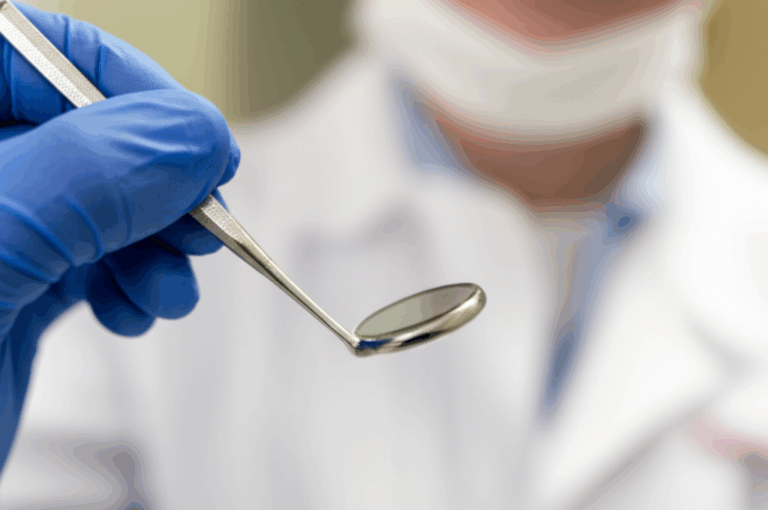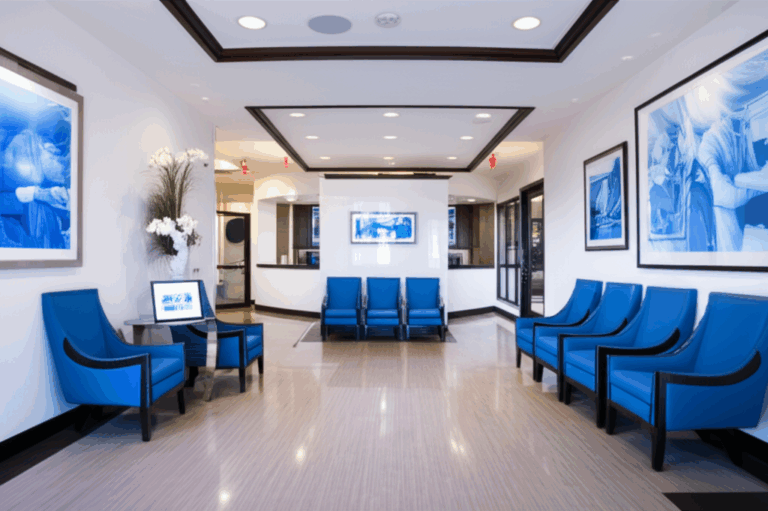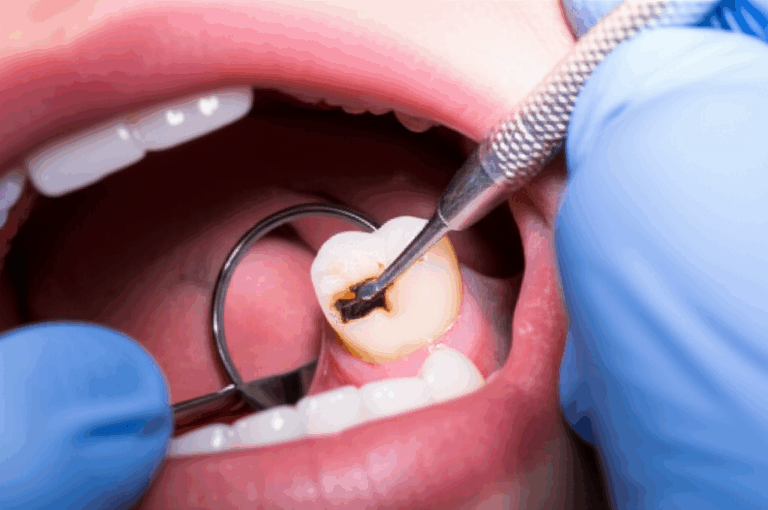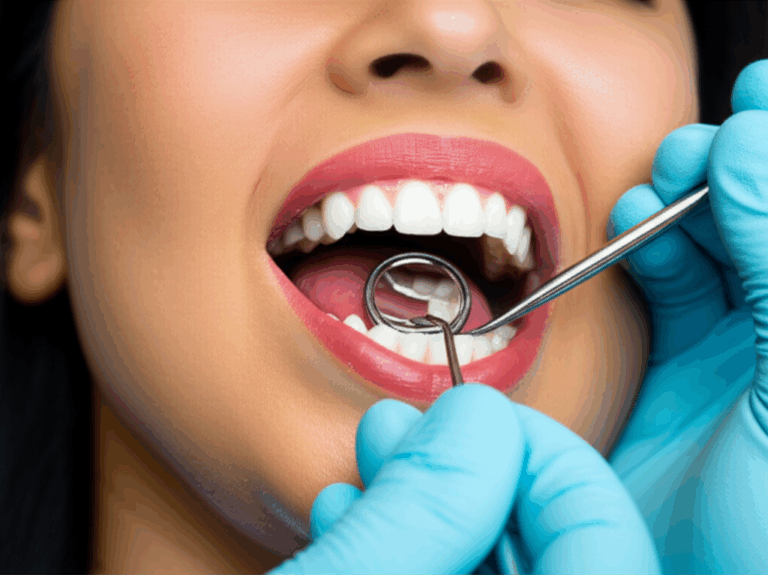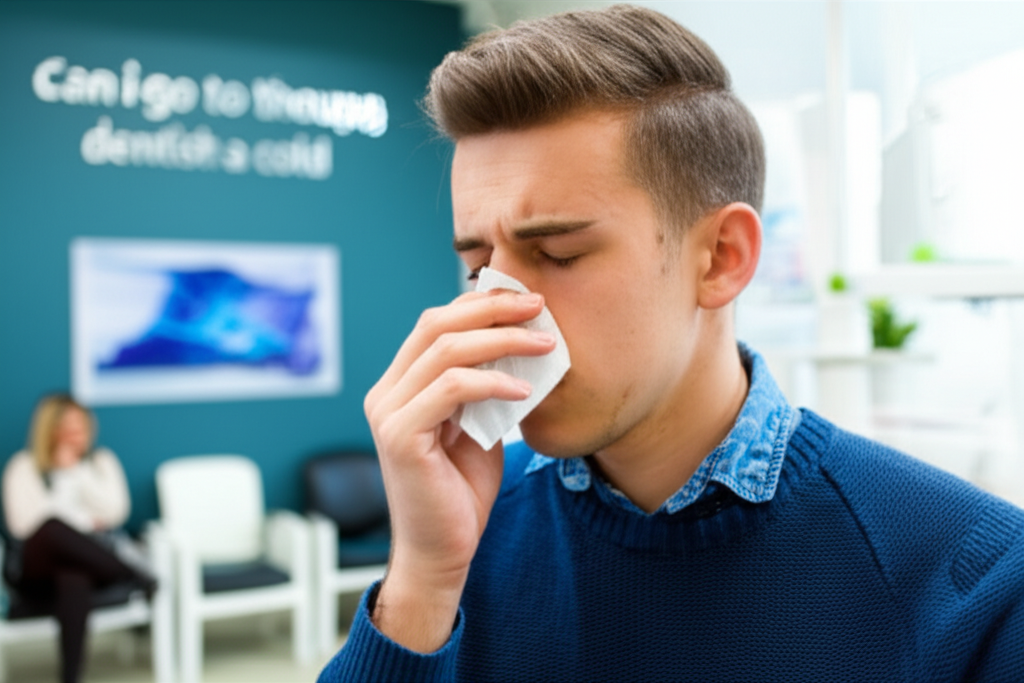
Can You Go To The Dentist With a Cold? The Definitive, Compassionate Guide
We’ve all been there: You’ve got a dentist appointment for a cleaning or a filling, but now you’ve caught a cold. Your body doesn’t feel right, you’re reaching for tissues, your nose is all blocked up, and you can’t stop sneezing. Now you’re searching, “Can I go to the dentist with a cold?” and trying to figure out if you should just deal with it or call and move your appointment.
Don’t worry—lots of people have the same question. Life sometimes throws a cold at us right before something important. If you’re not sure what to do, you’re in the right place. Let’s break things down together so you can make a good choice for you, your health, and everyone at the dentist’s office.
In This Article
What We’ll Cover:
- The Short Answer: It Depends
- When It’s Best to Reschedule Your Dental Appointment
- When It Might Be Okay to Keep Your Appointment (With Precautions)
- Why Your Dentist Prefers You Reschedule (It’s Not Just About Them)
- What To Do If You Have A Cold Before Your Dental Appointment
- Managing Your Oral Health While Sick With a Cold
- FAQ: Common Questions About Dental Visits & Colds
- Conclusion: When in Doubt, Call Your Dentist
The Short Answer: It Depends
You want a simple answer: Can you go to the dentist with a cold?
Here it is—sometimes, yes, but usually it’s safer for you and everyone else to move your appointment if you’re sick.
Why is the answer not a clear yes or no? Because it depends on a few things:
- How bad are your symptoms?
- Are you still likely to pass on the cold?
- What kind of dental appointment do you have—just a cleaning, something urgent, or a real emergency?
Just like you wouldn’t want to go to a party coughing and sneezing, there are times when going to the dentist isn’t the best idea. But there are also times when you really do need to go—especially if it’s an emergency.
Let’s figure it out so you know what to do.
When It’s Best to Reschedule Your Dental Appointment
If you have strong cold symptoms, it’s usually best—for you and everyone else—to call and move your dentist visit. Here’s when you should pick up the phone:
1. You Have Contagious Symptoms
These signs show you might still be passing on your cold:
- Fever: If you have any fever, your body is fighting something and you might be spreading germs. Always reschedule.
- Coughing a lot: Coughs spray germs around—right into the air your dental team and other people are breathing.
- Sneezing often: Each sneeze spreads germs too, not great when you’re lying back in the dentist’s chair.
- Throwing up or diarrhea: If your cold includes stomach problems, your body needs to rest, and no one at the dentist’s office wants these germs.
2. Your Symptoms Make Your Visit Too Uncomfortable
- Blocked nose: Lying back with a blocked up nose feels terrible—you might feel like you can’t get enough air.
- Very sore throat: Dental tools and a sore throat do not mix.
- Body feels achy and tired: Dental visits take about an hour. If you just want to curl up at home, do that instead.
- Lots of mucus or post-nasal drip: It’s really hard to hold your mouth open if you need to keep swallowing or clearing your throat.
3. You Want to Stop Germs Spreading to Others
Even if you don’t feel that bad, don’t forget: colds pass easily, especially early on. The dentist’s staff and other patients don’t want your cold. It might feel awkward to cancel, but really, you’re doing everyone a favor.
4. Your Dentist’s Office Might Make It a Rule
Most dental offices—using rules from the American Dental Association (ADA) and Centers for Disease Control and Prevention (CDC)—ask you to move your visit if you’re sick with something you can pass on. If you turn up sick, some offices will even send you home.
When It Might Be Okay to Keep Your Appointment (With Precautions)
Sometimes you just can’t skip the dentist—maybe your tooth hurts a lot, or your symptoms are barely there. Can you ever still go? Yes, but only in certain cases.
1. Mild, Not-Contagious Symptoms
- No fever
- Just a mild runny nose or tickle (like you’re almost over your cold)
- Your symptoms are getting better, not worse
- You’re past the “spreading germs” part (often a week after your cold started, but check with your dentist)
2. Non-Invasive Consultations
- Virtual visits: If your dentist offers appointments by phone or video, choose these while sick.
- Quick, non-invasive visits: If you only need to pick up something or need a really short check, sometimes it’s okay.
3. True Dental Emergencies
Sometimes you can’t wait, like for:
- Bad tooth pain
- Swelling in your face or gums (might be an infection)
- Broken tooth (with sharp bits or bleeding)
- Injuries (like after a fall)
If you have a dental emergency, call your dentist as soon as possible and explain your cold symptoms. Many places can see you safely with special routines—like a different room or a later time of day, so you don’t spread germs.
Why Your Dentist Prefers You Reschedule (It’s Not Just About Them)
You might wonder—why is your dentist so strict about sickness? Are they just fussy? Actually, no. Here’s why they ask you to come when you’re healthy:
1. Stopping Sickness from Spreading (Protecting Everyone)
- Dental offices are good places for germs to spread. Dentists work close to faces, and sometimes dental tools spray water or make a fine mist.
- The CDC and American Dental Association have rules to keep colds, flu, and COVID-19 from spreading.
- By staying home, you help keep the dentist and other patients well.
2. Your Comfort and Safety
- You need to breathe easily during a dental visit, especially if you’re lying back with your mouth open.
- With a blocked nose, it feels pretty bad, and you might have to cough or gag more.
- Getting dental work while sick shouldn’t be a workout!
3. Dentist Needs to Work Carefully
- Coughing and sneezing make it hard for the dentist to do a careful job, especially for things like fillings and crowns.
- Too much mucus can make it hard to see and slow the work down.
- Sometimes numbing shots don’t work as well when your head is blocked up.
4. Keeping the Dental Team Safe
- Dentists work really close to your mouth, closer than most people get.
- Even with masks and gloves, being close to sick people puts them at more risk.
- When you reschedule, you’re being thoughtful and looking out for them.
What To Do If You Have A Cold Before Your Dental Appointment
You wake up feeling sick—sniffly, coughing, and maybe a sore throat. Your dentist visit is coming up. What now? Here’s a simple plan:
1. Check Your Symptoms Honestly
Ask yourself:
- Do I have a fever?
- Am I coughing, sneezing, or stuffed up?
- Is this early in my cold, or am I just getting better?
- Will I be able to breathe and sit still for the whole visit?
If you answer yes to the first three, you should wait and reschedule.
2. Call Your Dentist’s Office Right Away
Don’t just skip your appointment! The staff will be glad you called. When you call:
- Tell them honestly how you feel.
- Ask about their rules—most offices drop late fees when you’re sick.
- If it’s an emergency, tell them your symptoms—some places have ways to get you seen safely.
Remember: Cancelling is better than pushing through and feeling worse later.
3. Focus on Getting Better
You might feel bad for cancelling, but you’ll have a better dentist visit when you’re healthy. Rest, drink water, and keep your mouth as clean as you can.
4. Reschedule Once You’re Feeling Better
Most colds are gone in 7–10 days. As a rough guide:
- Wait at least a day after your fever goes away.
- Try to wait until your cough and sneezing are gone and your energy is back.
- Still not sure? Call the dental office—they deal with this a lot and can let you know when it’s okay to come in.
Managing Your Oral Health While Sick With a Cold
Being sick doesn’t mean your mouth stops needing care! Here’s how to look after your teeth and gums until you’re feeling better.
Easy Teeth Care Tips:
- Brush gently: Use a soft toothbrush if your mouth is sore.
- Floss every day: Don’t let a stuffy nose and mouth breathing help plaque grow!
- Rinse if brushing is tough: If your throat hurts too much to brush, use a gentle saltwater rinse to keep germs down.
- Drink lots of water: This helps clear mucus and stops your mouth from drying out.
- Try saline spray for your nose: This can help you breathe through your nose, which also helps keep your mouth from feeling dry.
Be Careful with Sweets!
- Stay away from sugary cough drops & lozenges: These stick to your teeth and can cause cavities. If you use them, try to brush after, or at least rinse your mouth.
- Sip water often: Especially if you’re taking cold medicine—it can dry out your mouth.
For a Scratchy Throat:
- Warm saltwater rinses can help your throat and wash out germs in your mouth.
- Don’t use harsh mouthwashes—ones with a lot of alcohol can make your throat feel worse.
If You Wear Dental Appliances:
- Keep things like retainers, night guards, or dentures extra clean, because germs can hide on them. If you have one from a china dental lab, make sure to clean it the way your dentist told you to, especially when you’re not feeling well.
FAQ: Common Questions About Dental Visits & Colds
Let’s quickly answer some common questions people ask their dentist during cold season.
1. Can I get a filling with a cold?
If your symptoms are mild—just a little runny nose, no fever, and you feel okay—you might be able to. But if you’re coughing, sneezing, or really stuffed up, it’s best to wait. The dentist needs you to keep still for fillings!
2. What if I have a dental emergency and a cold?
If something really hurts, don’t wait! Call your dentist right away. Tell them if you’re sick—they might ask you to wear a mask or come in later in the day, so there’s less risk for others.
3. How long after a cold should I wait to see the dentist?
As a guide, wait at least a day after your fever is gone, and a few days after the worst of your cold. Most grown-ups can’t pass on a cold after about a week. But if you’re still coughing a lot, it’s best to wait a bit longer.
4. Do decongestants help before a dental visit?
Nasal sprays and cold pills can clear your nose, but often make your mouth dry. Dry mouth means more germs and can make your appointment uncomfortable. Have some water handy, and let your dentist know what you took.
5. What about COVID-19 or flu symptoms?
COVID-19 and the flu can feel just like a normal cold (cough, stuffy nose, sore throat). But they can be much easier to pass to others and can make people much sicker, especially in a health office. If you think you might have COVID-19 (like you have a fever, a bad cough, or can’t taste or smell), stay home and follow public health rules.
6. Will my dentist charge a fee if I’m sick and cancel last-minute?
Most offices won’t charge you for being sick, especially after the pandemic started. Just let the office know. It’s much better to cancel than to show up sick.
7. Can going to the dentist with a cold make my illness worse?
Not really, but going when you’re sick (lying down, mouth open, feeling stressed) can make you feel more tired later. It’s better to rest at home and get better faster.
The Science—Why Are Dentists So Careful About Colds?
Here’s what the research and health rules show:
- How Colds Spread: Colds, flu, and COVID-19 spread when you cough, sneeze, or even talk. Dental work can make little sprays in the air, which means germs hang around the room.
- Most Contagious Time: You pass on the most germs in the first 2–3 days of a cold, but you might keep passing them to others for up to a week.
- Dental Office Rules: The ADA and CDC say sick patients should stay home unless it’s an emergency. Dental clinics clean a lot and use things you throw away after one use.
- Your Comfort: Almost everyone with a cold has a blocked nose. Lying back, mouth open, and not being able to breathe is no fun, and can make it hard to finish up dental work.
- Trouble Doing Dental Work: Coughing or sneezing can break the dentist’s concentration. Nobody wants to get poked because they sneezed at the wrong time!
- If It’s an Emergency: When you can’t wait (pain, swelling, or bleeding), dental offices use extra cleaning or other steps to see sick patients safely.
- Where This Advice Comes From: These tips are from top health groups, including the CDC, ADA, World Health Organization, and the Mayo Clinic.
Who Is This Advice For? (Who Should Reschedule vs. Go Anyway)
These tips are for everyone with a cold, no matter if you’re in for a normal cleaning, crown and bridge work, or just a check-up. Here’s how to know if you should move your appointment, or if it’s okay to keep it:
You should move your visit if:
- You’re in the first 3–5 days of a cold (when you’re passing on the most germs).
- You have fever, chills, tummy trouble, or body aches.
- You’re coughing or sneezing a lot.
- Lying down makes it hard to breathe.
- Your visit will take a long time.
You might be okay to go if:
- Your symptoms are mild, and almost gone.
- You’ve had no symptoms for 24+ hours.
- It’s just a quick check or chat, not something long or complicated.
- It’s a real dental emergency (but always phone first).
If you’re still unsure, call your dentist. Honest talks help everyone stay safe and get care.
Your Healthy Takeaway (Summary & Next Steps)
Here’s a simple wrap-up and what you can do next:
Main reminders:
- Listen to your body: If you feel sick, it’s usually best to skip your appointment.
- Call your dental office: Tell them how you feel and get their advice.
- Don’t spread germs: Your dentist and everyone else will be glad you waited.
- Getting better first helps: Your visit will be easier when you’re feeling well.
- Emergencies are different: Always call fast if you have bad pain or an injury.
- Care for your teeth at home: Brush softly, drink water, avoid sugary cough drops, and keep your dental gear clean.
What to do:
Remember, your dentist’s office deals with this all the time, and they want to help. No question is too small, and it’s never embarrassing to reschedule. Your health—and everyone else’s—comes first.
Want to Protect Your Smile Year-Round?
Going to the dentist for checkups when you’re feeling good keeps your teeth and mouth healthy. If you want to know more about how different dental treatments are made, there are new things like digital dental labs and fancy ceramics your dentist might use. Curious what happens when you need a new crown or a night guard? Read more about it.
A cold only lasts a short time. But healthy teeth last for life. If you’re not sure what to do, call your dental office—they’re there to help you.
Disclaimer: This article isn’t meant to replace professional medical or dental advice. Always talk to your own doctor or dentist about your health and get the right help for your situation.

